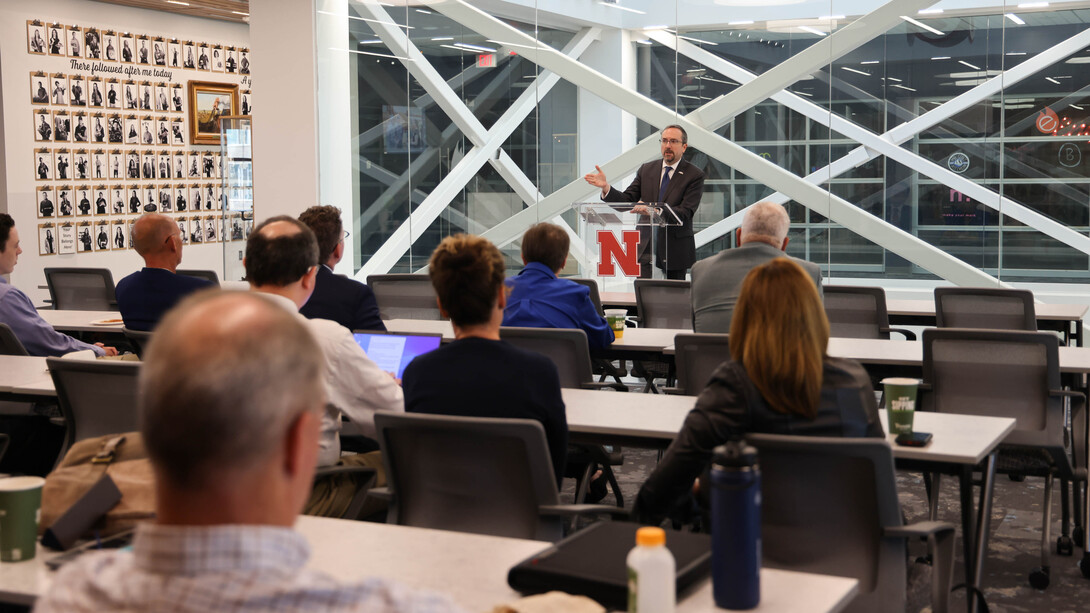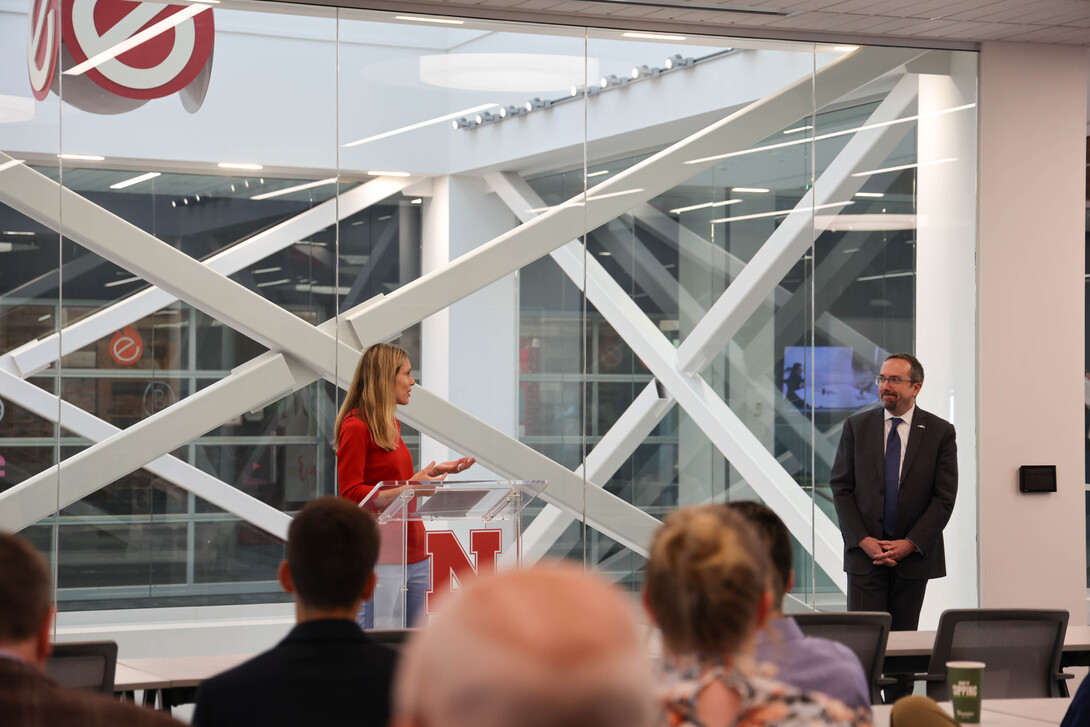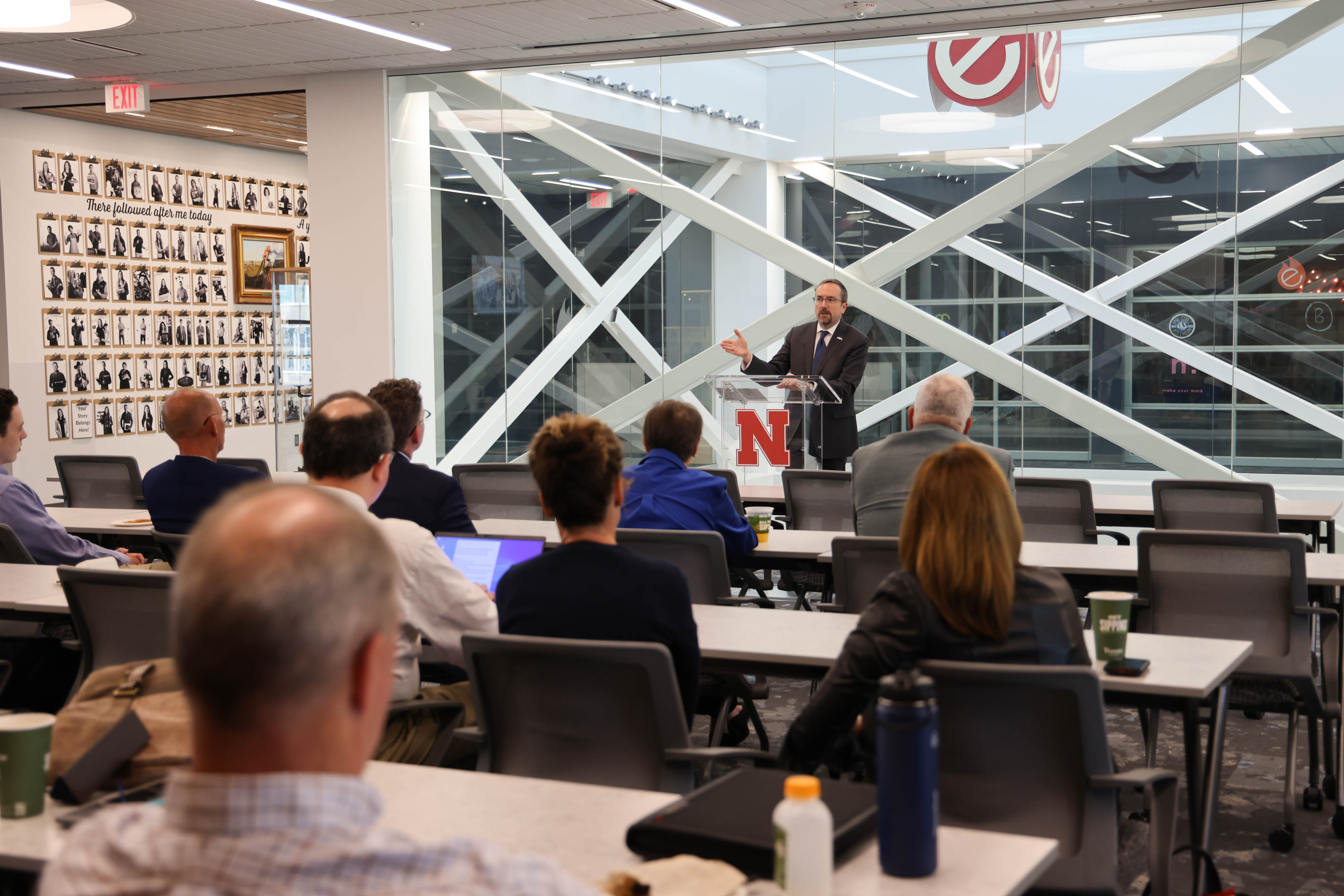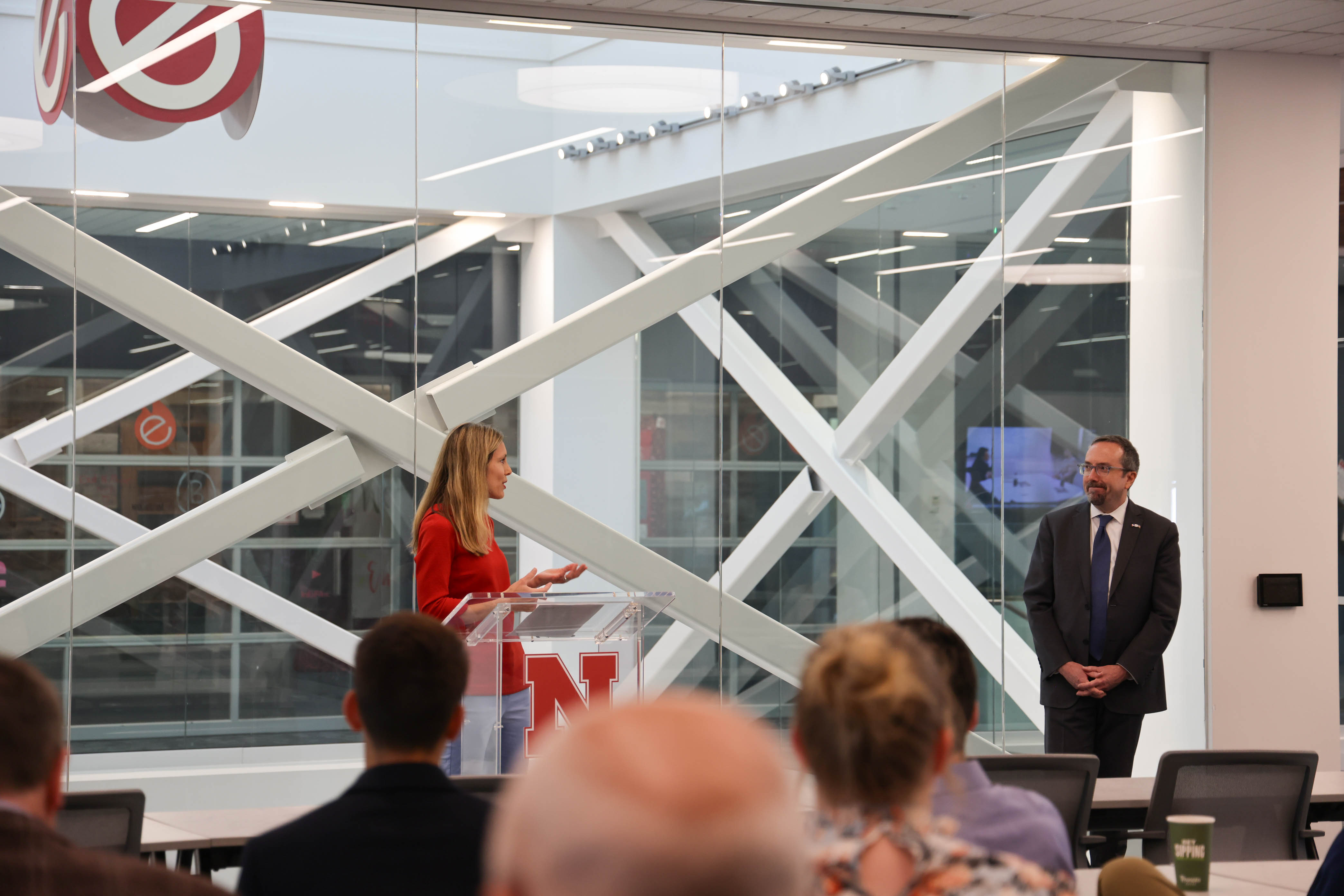
International partnerships are vital in helping the United States address global uncertainties such as shipping disruptions and export complications, a State Department leader told Nebraska ag industry representatives in a University of Nebraska–Lincoln presentation.
“Here at the center of America, I know how important access to international markets is to the economy in Nebraska,” John Bass, under secretary of state for political affairs, said in a June 7 event at the Dinsdale Family Learning Commons.
The State Department’s embassies and consulates around the world work “to make sure there is a level playing field for U.S. companies and U.S. exports,” Bass said. “We’re doing everything we can to promote U.S. exports.”
The Clayton Yeutter Institute of International Trade and Finance and the Nebraska Farm Bureau cosponsored the event. Nebraska ag industry representatives and Institute of Agriculture and Natural Resources faculty attended the session and participated in a question-and-answer session with Bass, whose leadership position makes him the highest-ranking member of the Foreign Service.
“Both sets of my grandparents were farmers in upstate New York,” said Bass, who has served as ambassador to Afghanistan and Turkey. “I grew up kind of a free-range kid on my grandparents’ dairy farm for a bunch of years. So, that’s always been at the core of who I am.”
Sherry Vinton, director of the Nebraska Department of Agriculture, said during the Q&A that Nebraska has a “great partnership” with the U.S. Department of Agriculture’s Foreign Agricultural Service in promoting Nebraska’s ag exports. USDA staff members were particularly helpful to Nebraska’s recent trade outreach to Vietnam, including work to address African swine fever, she said.
The State Department has an ag-focused office, Bass said, and Foreign Service officers complement USDA efforts abroad by supporting U.S. ag interests in countries where the Foreign Agricultural Service does not have an officer.
Al Juhnke, executive director of the Nebraska Pork Producers Association, said that overseas sales account for about 30% of Nebraska pork production and contribute $50 to $60 per head.
“So, it’s a big, big deal,” he said.

But shipping disruptions, especially in Asia, are raising concerns for the state’s ag export needs, Juhnke said.
State Department officials “spend a lot of time trying to preserve freedom of navigation and dealing with acute challenges to predictability and volume of shipping traffic through specific geographies,” Bass said. China’s naval maneuvers to intimidate Taiwan raise concerns in part because “50% of container traffic globally transits the Taiwan Straits.”
A similar concern has occurred in the Red Sea with attacks on commercial vessels by the Iran-backed Houthi militia in Yemen.
Those examples illustrate the value of U.S. partnerships abroad, Bass said. In Asia and the Pacific, the U.S. has strong security relations with key partners such as Japan, South Korea and Australia. Within 48 hours after the first Houthi attack in the Red Sea, the U.S. partnered with six countries to provide patrols for shipping protections, in addition to similar action by European Union members.
In his discussion of China, Bass noted that Daniel J. Kritenbrink, the assistant secretary of state for East Asian and Pacific affairs and a former ambassador to Vietnam, is a native of Ashland, Nebraska.
Kyle Rohrich, a Foreign Service officer who attended the East Campus event, provided another Nebraska connection. A native of Pierce in northeast Nebraska, he described his experience in Azerbaijan, where he and other State Department officials worked with the Foreign Agricultural Service to explain the benefits from allowing genetically modified ag exports from the United States.
In addition, when a lack of snowpack melt in Azerbaijan’s mountains raised water shortage concerns for the country’s downstream farmers, State Department officials helped that country’s Ministry of Agriculture explore options for U.S. center pivot irrigation purchases from companies such as Nebraska’s Valley Irrigation and Lindsay Corporation.
“So, this was an opportunity for us not only to demonstrate our bilateral partnership and commitment to supporting Azerbaijan and its development, but also to create jobs here,” Rohrich said.
Mark McHargue, president of the Nebraska Farm Bureau, told Bass that “probably on a weekly basis, our office is having some sort of climate-related conversations relative to agriculture.”
It’s important to hold countries to their formal commitments on climate action, Bass said. Secretary of State Anthony Blinken, he said, has named Cary Fowler, a globally respected expert in plant genetics and seed science, to help the State Department adjust its development assistance strategy to help farmers overseas better cope with challenges such as aquifer reduction, groundwater salinity and drought.
Student attendance at the event included current Yeutter student fellow Matthew Gillespie and Yeutter alumnus Sam Pribyl. Bass addressed the students in his concluding remarks, urging them to consider a career in the Foreign Service.
“There is no greater privilege and responsibility than serving overseas and speaking for the United States,” he said.









